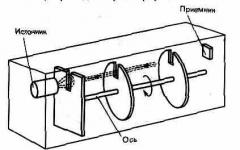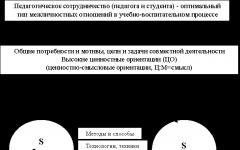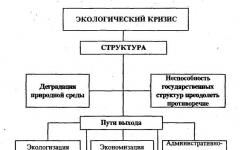AND
no comments
71
Abbreviated English course "Polyglot English in 16 hours". Cropped Lesson 10 of English language polyglot Dmitry Petrov. Learn English from scratch in 16 hours, lessons for beginners.
Subscribe to the channel: http://16polyglot.ru/youtube
All English lessons: http://16polyglot.ru/en
All abbreviated lessons: http://16polyglot.ru/fast
Lessons by topic: http://16polyglot.ru/lessons
Polyglot English from scratch in 16 hours for free with Dmitry Petrov. 16 English lessons for beginners with Polyglot online. Watch the video of English lessons on your own with Petrov.
Video tutorials in other languages:
German: http://16polyglot.ru/de
French: http://16polyglot.ru/fr
Spanish: http://16polyglot.ru/sp
Italian: http://16polyglot.ru/it
Hindi (India): http://16polyglot.ru/hi
Portuguese: http://16polyglot.ru/pt
PREMIERE! Chinese: http://16polyglot.ru/ch
NEW COURSE! Russian for Russians: http://16polyglot.ru/ru
Official pages of the Dmitry Petrov Center:
VKontakte: http://vk.com/centerpetrova
Facebook: http://fb.com/polyglotPetrov
Classmates: http://ok.ru/centerpetrova
Official website: http://centerpetrova.ru
Download notes and tables of all lessons: http://16polyglot.ru
Thanks to the Polyglot 16 channel, more than 15 million people have learned English, German, French, Chinese and other languages from scratch. All language lessons are free, available for both beginners and those who learn from scratch. In just 16 hours with the polyglot Dmitry Petrov!
Polyglot English in 16 hours. Lessons in English, German, French, Spanish and Chinese for 16 lessons with Dmitry Petrov "Polyglot from scratch". Italian, Portuguese and Hindi in 16 hours. Polyglot 16 is suitable for both beginners and those who learn English and Chinese from scratch. All German lessons by Petrov can be watched for free: English grammar online, Spanish tenses, regular and irregular verbs.
Today's lesson will be devoted to casual communication on various topics related to our life experience. When learning a foreign language, it is very important to remember that the best way to studу a foreign language is to speak (The best way learn a foreign language - speaking). Expressing your own thoughts allows you to develop and improve your language skills.
Easy communication as a tool for mastering a foreign language
Grammar is undoubtedly a useful thing, but it only serves the foundation of our oral speech , practical communication. The grammatical constructions we study in such detail are, in fact, nothing more than foundation on which we build brick by brick building, oral speech... Trying to master a new language, like beads string the words you know on fishing line - grammar diagram but do not be afraid to make a mistake, for fear paralyzes and enslaves. Remember, language is gifted to a person for communication, and silence in this case is by no means golden!
So, the main grammatical tense that helps to tell about what happened to us for a certain time back called Past simple and is formed as follows:
| Positive sentence (+) |
Negative Sentence (-) |
Interrogative sentence (?) |
| V (2 / ed)…. | didn’t V ... | DidV ...? |
| 1. It gave gave | 1. It didn’t give me a chance to see wonderful paintings. - It did not give I have the opportunity to see wonderful paintings. | 1. Did it give me a chance to see wonderful paintings? - Gave is this an opportunity for me to see wonderful pictures? |
| 2. We rehearsed a new play yesterday. - We rehearsed a new play yesterday. | 2. We didn’t rehearsе a new play yesterday. - We did not rehearse a new play yesterday. | 2. Did we rehearsе a new play yesterday? - And we yesterday rehearsed a new play? |
* Is the subject of the sentence, expressed by a pronoun (I, she) or a noun (price - price, game - game), and V- a verb that conveys an action, put in second form, if it is an irregular or regular verb with an added ending -ed.
How to find out if a verb is correct? Very simple, wrong, you just need learn by heart ! For this, there is a table of irregular verbs. Here are some of them:
| Verb | Verb 2 | Verb 3 | Russian Translation |
| feed | fed | fed | feed |
| go | went | gone | walk |
| See | saw | seen | see |
| meet | met | met | meet |
| lose | lost | lost | lose, lose |
| win | won | won | win, win |
| take | took | taken | take |
| be | was | were | to be |
| give | gave | given | to give |
To form a proposal, choose a form from second columns !!!
If the verb does not appear in the table of irregular verbs, then there are no problems, just add the ending to the stem -ed.
If the sentence is negative or interrogative, we use the verb in the first form, because we use subsidiary DID !
Now let's get back to life situations
Imagine yourself touring an actor or actress(actor, actress), who is asked about what has happened in his life recently. We will carry out discussion(discussion) on a given topic.
- What did you do yesterday?(What did you do yesterday?) - the interlocutor asks with interest. - Was there something interesting in your life?(Has anything interesting happened in your life?).
You, of course, begin to describe the events that happened. The first thing that a wandering person will need is to point out the fact that he does not sit on the spot, but travels. How? The fastest and most common way is by air. "Fly" in English to fly, and if your flight (a flight) took place yesterday, then you flew(verb form in simple past tense). Did you fly to Riga yesterday? Let's say
I flewto Riga yesterday - I am yesterday summer l v Riga.
Note! the direction of your flight is indicated by the preposition "To" - flу to Riga, to Moscow, to London.
With travel sorted out, let's return to the nature of your occupation. Are you an actor (or just creative person), which means people, viewers are extremely important for you, their perception is important - perception, the way they are perceive(perceive) and absorb[əb'zɔːb] (understand) what you want to convey to them. As a rule, for good game the audience remains extremely grateful[‘Greɪtf (ə) l], thank you.
However, there are no two identical people in the world and, moreover, identical nations, which means that the question should be answered:
What is the difference between….? - And what is difference between….?
And, of course, describe your impressions[ɪm'preʃ (ə) ns] impressions of visiting a city, city[‘Sɪtɪ].
Expressions for dialogue
Here are a few more useful words and expressions that can be useful in friendly dialogue, breaking them into groups.
At first, are very important introductory constructions type:
- I will be short - I will be short.
- At the end of the talk - at the end of the conversation.
- At the same time - at the same time.
- Fortunately / unfortunately - fortunately / unfortunately.
- In a positive / good sense - in a good way.
- It means means.
- Sure - of course.
Unfortunately, we never met before - Unfortunately, before we never met.
Don't forget to use expressions like this!
Secondly, one cannot do without naming objects and phenomena of reality in speech.
- Price - price.
- Team is a team.
- Opinion [ə'pɪnjən] - opinion.
- Space - space.
- Stage - stage. On stage - on stage.
Thank to our team spirit we won... - Thanks to teams spirit, we won.
Thirdly what we do in life.
- To spend time - to spend time.
- To keep silence - keep silence.
- To go to bed - go to sleep
- To feel - to feel / feel.
After the rehearsal I felt better - I felt better after the rehearsal.
And, of course, adverbs that indicate the time and frequency of action.
- Often [‘ɔf (t) (ə) n] / seldom [‘ seldəm] - often / rarely
- Usually [‘juːʒ (ə) lɪ] - usually
He often repeated that on air - He often repeated this on the air.
We seldom went to restaurants. - We rarely went to restaurants.
One more thing! To each modern man it is necessary to be familiar with the name of some realities. For example, we often use biblical names in speech:
- Jesus Christ - Jesus Christ
- Virgin Mary - Our Lady
- Trinity - Trinity (the famous icon of A. Rublev, exhibited in the Tretyakov Gallery, has a similar name).
- And, of course, the Bible itself is the Bible.
So for modern (modern) knowledge of a foreign language is an absolute must, but learning it is not easy, because you have to (you have to, you need) remember and constantly keep in mind a huge amount of information. And in this, nothing will help better than practical training.
1. Translate into English.
- Unfortunately, I did not see icons of Rublev.
- Usually we respected the elders.
- After rehearsal, the actor went to bed?
- I AM was very thankful to you.
- This did not mean that we should go to Paris.
- How did you take the news?
- What s the difference between you?
2. Memorize the verbs given in the table, make your own sentences with them.
3. Memorize all words and phrases in the lesson text. Try to silently describe the situations that have happened to you.

The topic of numbers ends. New words are taken to denote months. In this lesson, students answer the questions - how old are you? When is your birthday? What will you do tonight? Also, in this lesson, several adjectives and a structure will be added to your arsenal, which allows you to compare some items by quality (that is, the degree of comparison).
Watch online 10th edition of “Polyglot. French in 16 hours ":
Lesson 10 synopsis:
QUEL HEURE EST-IL? - what time is it now?
IL EST DEUX HEURES - now two o'clock
IL EST DEUX HEURES ET DEMIE - it's half past two
Numbers:
TREIZE - thirteen
QUATORZE - fourteen
QUINZE - fifteen
SEIZE - sixteen
DIX-SEPT - seventeen
DIX-HUIT - eighteen
DIX-NEUF - nineteen
VINGT - twenty
TRENTE - thirty
QUARANTE - forty
CINQUANTE - fifty
SOIXANTE - sixty
SOIXANTE-DIX - seventy
QUATRE-VINGT - eighty
QUATRE-VINGT-DIX - ninety
QUATRE-VINGT-DIX-NEUF - ninety nine
DEUX CENTS - two hundred
TROIS CENTS - three hundred
MILLE - one thousand
MILLE NEUF CENTS QUATRE-VINGT ONZE - 191st
DEUX MILLES DOUZE - two thousand and twelve
J'AI VINGT ANS - I'm twenty years old
J'AI TRENTE ANS - I'm thirty years old
IL A TRENTE-CINQUE ANS - he is thirty-five years old
ELLE A QUARANTE ANS - she is forty years old
Months:
JANVIER - January JUILLET - July
FÉVRIER - February AOÛT - August
MARS - March SEPTEMBRE - September
AVRIL - April OCTOBRE - October
MAI - May NOVEMBRE - November
JUIN - June DÉCEMBRE - December
In the formation of a date, only one numeral - one, gets an ordinal form - the first, for example, June 1st -LE PREMIER JUIN... All others take the usual form of the number, for example the secondJune -LE DEUX JUIN.
BON ANNIVERSAIRE! - happy Birthday!
QUEL ÂGE AS-TU? - How old are you?
QUEL ÂGE VOUS AVEZ? - how old are you?
Add another very important one, irregular verb to your table -
PRENDRE- take
ILS / ELLES PRENNENT
J'AI PRIS- in the past time
If you add the prefix -COM, it turns out the verb -
COM PRENDRE - to understand.
JE PRENDS - I take
JE COMPRENDS - I understand
TU ME COMPRENDS? - you understand me?
JE TE COMPRENDS - I understand you
COMPRENDS-MOI! - understand me!
J'AI PRIS- I took
J'AI COMPRIS - I got it
If you add to the verbPRENDRE- take, prefixAR, it turns out the verb -
AP PRENDRE - Teach, Study.
J'AI APPRIS - I learned
J'APPRENDS LE FRANÇAIS - I'm learning French
When the masculine articleLEmeets the prepositionÀ (indicating the direction), it turns out -À + LE= AU
JE VAIS AU CINEMA - I'm going to the cinema
JE VAIS AU RESTAURANT - I'm going to a restaurant
JE VAIS AU MAGASIN - I'm going to the store
If the noun is feminine or beginning with a vowel thenÀ andLApersist
JE VAIS À LA MAISON - I'm going home
CHAQUE JOUR - every day
LE PREMIER JOUR - first day
LE DERNIER JOUR - the last day
LA DERNIÈRE FOIS - the last time
LA PREMIÈRE FOIS - first time
COMBIEN DE FOIS? - how many times?
J'AI PRIS UN CAFÉ - I drank coffee
PLUS- more, more
PLUS FROID - colder
PLUS CHAUD - warmer
PLUS HAUT - higher
PLUS BAS - below
PLUS INTÉRESSANT - more interesting
PLUS JEUNE - younger
QUE- how
CETTE MAISON EST PLUS GRANDE QUE L'AUTRE - this house is bigger than another
ELLE EST PLUS JEUNE QUE TOI - she is younger than you
Adjectives, like nouns, can be masculine and feminine. Usually female uniform the adjective is formed with the addition of the letter E, as a result of which the last letter in the masculine form begins to be read, for example -FROID / FROIDE.
| M | CHAUD - PLUS CHAUD QUE | LE PLUS CHAUD |
| BON - MEILLEUR | LE MEILLEUR | |
| F | CHAUDE - PLUS CHAUDE QUE | LA PLUS CHAUDE |
| BONNE - MEILLEURE | LA MEILLEURE | |
| BIEN | MIEUX |
New words:
POUR-CENT - percentage, POUR - for, CENT POUR-CENT - 100%, SEMAINE - week, MOIS - month, months, ANNIVERSAIRE - birthday, anniversary, ÂGE - age, PRENDRE - take, COMPRENDRE - understand, APPRENDRE - learn , to study, RECONNAÎTRE - to learn, HÔPITAL - hospital, JEUNE FILLE - girl, NOUVEAU - new, NOUVELLE - new, NOUVELLE - short story, DE NOUVEAU - again, PREMIER / PREMIÈRE - first / first, DERNIER / DERNIÈRE - last / last, / FROIDE - cold / cold, CHAUD / CHAUDE - hot / hot, HAUT / HAUTE - high / high, BAS / BASSE - low / low, BON / BONNE - good / good, MEILLEUR / MEILLEURE - best / best, BIEN - good , MIEUX - better CHAQUE - everyone, LA FOIS - time, RÉCEMMENT - recently, recently, PLUS - more, more, QUE - than
Conclusion:
It is necessary to get by with a few words in colloquial speech, in Russian you do just that. And when you start speaking in foreign language, it seems to you that you need to create a text in Russian and then translate it into another language. But, more often than not, people use a small set of words that can be expressed or understood.








